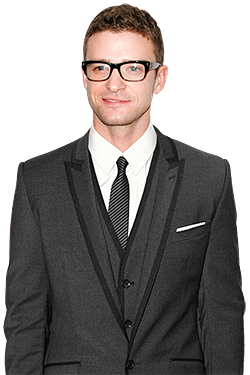
Vulture has mixed feelings about the emergence of Justin Timberlake, respected actor. Sure, he’s great in The Social Network as the ego-freak, party boy, paranoid Napster founder Sean Parker. But we cried such a river when he suggested he might quit music that we developed a seven-point plan to force Timberlake back into the studio (or at least viral videos). But now that The Social Network is No. 1 at the box office, we must admit that our campaign has suffered a blow, so we’ll stop fighting the tide for one post at least and present an interview that’s not about his golden-gilt voice or angelic dance moves, but is instead about — sigh, we give up — acting.
All the characters in this movie have their good points and their bad points, but Sean Parker comes off as pretty much a villain, don’t you think?
I don’t think in this movie there is a good guy or a bad guy. They’re all ambitious young minds, and they all want to be the one with the best idea of how to execute a $25 billion company. It would be irresponsible of me to even try to diagram who these people were in real life, because I don’t know them. We’re actors, and we came into this project seeing these characters for who they were in the script. In real life, no one sees himself as the bad guy. People don’t see themselves as villains. And for me, what made this character tick is that I think he really saw himself as the guy who has the best idea. No character in this movie is right or wrong — there are just differences of opinion, and that’s where Aaron was able to make it, as he likes to call it, Shakespearean.
Did you have any urge to meet with Parker and compare the movie’s version of him to his own version of himself?
We all thought it would be irresponsible to delve into who these people were. It’d be kind of like cheating on a test. And the script is like the best Cliff’s Notes ever. He lays out the characters without ever having to explain them. His words are just fantastic to say.
So even in your life as a musician, you never came across Parker?
It was kind of weird timing. I met him briefly in New York. It was just after it was speculated that I was going to be playing the part. He was a really nice guy, personable. He seemed really cool. He had read the screenplay, and I had read the screenplay, and I just asked him what his thoughts were. But I didn’t really feel a responsibility to play that person. The other thing to remember is that you really trust where David’s going to take you. When you see a David Fincher film, you know what you’re going to get. I think what this movie is going to tell people about David is that he really understands human behavior and how people relate to one another. He’s really good with characters. It was a clinic watching him direct.
He does a lot of takes, though. Dozens sometimes. How did you feel about that?
Well, you know, the other films that I’d done up to this point were all really small budget. And if they weren’t, they were films that I had just come into for four or five days. On the other films, we were subject to six or seven takes at the most. In my first conversation with David, he goes, “Look, I know that your instinct comes from the stage and you’re used to having your performance completely diagrammed, so I’ll try not to do too many takes with you.” He was very respectful and very encouraging. And I just remember saying, “Whoa, wait, wait, wait … Sometimes there’s a beauty to performing onstage because you get one shot. But believe me, I want to do as many takes as you want to do — that sounds like freedom.”
And are you happy with the result?
In some ways, the pacing of it reminds me of Fight Club. It’s an assault on your eyes and ears … I texted David immediately after seeing the film and said, “Man, this is one of your best.”
Let’s talk a little about the nightclub scene in which you sort of seduce Mark Zuckerberg into your word. That must have been really demanding — it’s a long dialogue scene, where you have to talk above the music the whole time.
That scene was definitely challenging. It was a mouthful. Twelve pages, almost a monologue. And we did that scene in a day. I would try to heighten my confidence in my ability to spout off at a rapid pace. We rehearsed and rehearsed and rehearsed. Finally, it just got to the point where I remember David saying, “I’m gonna have Trent [Reznor] mix some house music that is so loud that you’ll have to lean in to hear what you’re saying.” David, all of a sudden, said, ““Now scream it at each other!” And as soon as we did that, twelve pages went by like they were two.”
It sounds like you accomplished a lot on the movie before you ever got in front of the camera.
Our rehearsal process consisted of reading the scenes for David and Aaron, over and over. We never got up from the table. For two or three weeks, we rehearsed and just listened to them talk about the characters. I’ll never have it that easy again. We’d say, well, this is my take, but having David and Aaron talk — the verbiage of that nightclub scene probably changed four or five times. That scene was constantly reworked. And I could tell that Aaron was happy to have his material in David’s hands.




